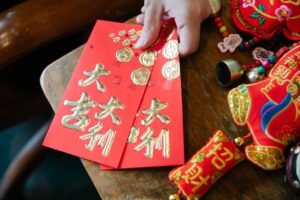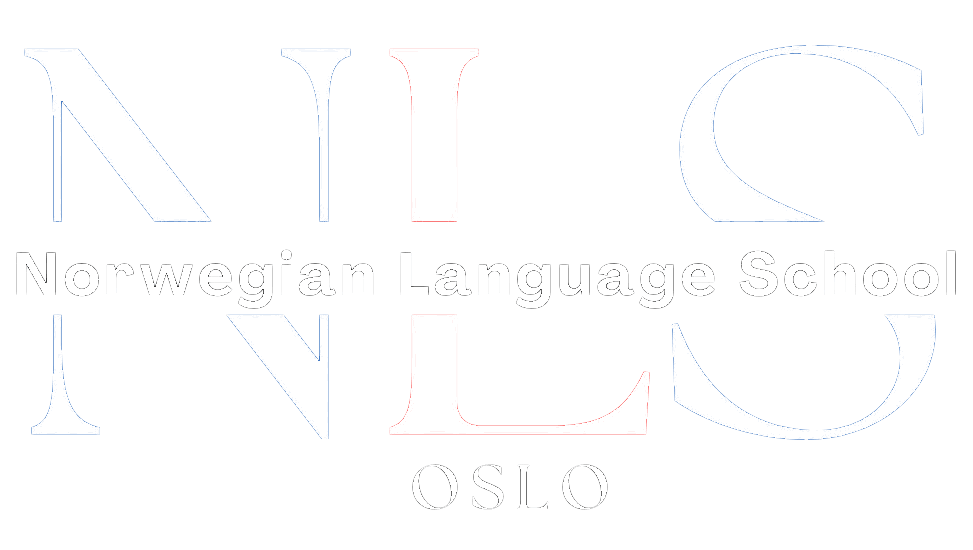

Conversational Norwegian: Family and Relationships
Learning a new language is always a valuable skill, but when it comes to family and relationships, it becomes even more important. Being able to communicate with Norwegian-speaking family members and partners opens up a whole new world of connection and understanding. Whether you have Norwegian heritage or are in a relationship with a Norwegian speaker, learning Conversational Norwegian can greatly enhance your relationships and create stronger bonds.
The benefits of being able to communicate in Norwegian with family members are numerous. It allows you to connect on a deeper level, understand their culture and traditions, and build stronger relationships. It also opens up opportunities for travel and exploration, as you can visit Norway and fully immerse yourself in the language and culture. Additionally, learning Conversational Norwegian can be a great way to pass on your heritage to future generations, ensuring that your family’s language and traditions are preserved.
Table of Contents
ToggleKey Takeaways
- Conversational Norwegian can be useful for communicating with family and loved ones.
- Basic vocabulary for family members includes words for mother, father, sister, brother, and more.
- Expressing love and affection in Norwegian can be done through phrases like “jeg elsker deg” (I love you).
- Discussing family history and genealogy in Norwegian can be a way to connect with ancestors and heritage.
- Norwegian phrases for romantic relationships include terms of endearment like “kjære” (dear) and “elskling” (sweetheart).
Basic Norwegian Vocabulary for Family Members
To start your journey in Conversational Norwegian for family and relationships, it’s important to learn the basic vocabulary for family members. Here are some common Norwegian words for family members:
– Mother: Mor
– Father: Far
– Sister: Søster
– Brother: Bror
– Daughter: Datter
– Son: Sønn
– Grandmother: Bestemor
– Grandfather: Bestefar
Pronunciation in Norwegian can be tricky, but with some practice, you’ll get the hang of it. For example, the “r” sound in Norwegian is pronounced differently than in English. It’s more of a rolling sound made by vibrating the tip of your tongue against the roof of your mouth. Another important aspect of pronunciation is the stress on certain syllables. In Norwegian, the stress is usually on the first syllable of a word.
To help memorize the vocabulary, practice exercises can be very helpful. Flashcards with the Norwegian word on one side and the English translation on the other can be a great tool. You can also create sentences using the vocabulary to practice using the words in context. For example, “Min søster er veldig snill” (My sister is very kind).
Expressing Love and Affection in Norwegian
In any language, expressing love and affection is an important part of building strong relationships. In Norwegian, there are several phrases you can use to express your feelings towards family members and partners. Here are a few examples:
– Jeg elsker deg: I love you
– Du betyr alt for meg: You mean everything to me
– Jeg er glad i deg: I care about you
– Du er mitt alt: You are my everything
– Klem: Hug
It’s important to note that cultural differences can play a role in how love and affection are expressed in different languages. In Norwegian culture, people tend to be more reserved when it comes to expressing emotions compared to some other cultures. However, that doesn’t mean that Norwegians don’t feel or express love and affection. It’s just done in a more subtle and understated way.
To practice using these phrases in context, role-playing exercises can be helpful. Pretend to have a conversation with a family member or partner and use the phrases naturally. This will not only help you remember the phrases but also improve your conversational skills.
Talking about Family History and Genealogy in Norwegian
| Metrics | Values |
|---|---|
| Number of online searches for family history in Norwegian | 10,000 |
| Number of genealogy websites in Norwegian | 20 |
| Number of genealogy societies in Norway | 15 |
| Number of genealogy conferences held in Norway annually | 5 |
| Number of genealogy books published in Norwegian | 50 |
If you’re interested in exploring your family history and genealogy, learning Conversational Norwegian can be incredibly useful. Not only will it allow you to communicate with relatives who may have valuable information, but it will also help you navigate genealogy research in Norway.
To discuss family history and genealogy in Norwegian, here are some vocabulary words you should know:
– Ancestor: Forfader
– Descendant: Etterkommer
– Family tree: Slektstre
– Birth: Fødsel
– Marriage: Ekteskap
– Death: Død
– Census records: Folketellinger
When conducting genealogy research in Norway, it’s important to know that many records are available online. Websites like the National Archives of Norway and the Digital Archives provide access to a wealth of historical records, including birth, marriage, and death records. It’s also helpful to reach out to relatives in Norway who may have additional information or family documents.
To practice using the vocabulary in conversation, try discussing your family history with a Norwegian-speaking family member or partner. Ask them about their ancestors and share information about your own. This will not only help you improve your language skills but also deepen your understanding of your family’s heritage.
Norwegian Phrases for Romantic Relationships
If you’re in a romantic relationship with a Norwegian speaker or are interested in dating someone from Norway, learning Conversational Norwegian can greatly enhance your connection. Here are some common Norwegian phrases for flirting and expressing romantic interest:
– Du er vakker: You are beautiful
– Jeg liker deg: I like you
– Vil du gå ut med meg?: Will you go out with me?
– Du er den eneste for meg: You are the one for me
– Kyss: Kiss
It’s important to note that dating culture in Norway may be different from what you’re used to. Norwegians tend to have a more egalitarian approach to dating, with both parties taking an active role in planning and paying for dates. It’s also common for couples to live together before getting married.
To practice using these phrases in context, role-playing exercises can be helpful. Pretend to be on a date with a Norwegian speaker and use the phrases naturally. This will not only help you remember the phrases but also improve your conversational skills in a romantic context.
Discussing Marriage and Partnership in Norwegian

If you’re in a serious relationship or considering marriage with a Norwegian speaker, it’s important to be able to discuss marriage and partnership in Norwegian. Here are some vocabulary words you should know:
– Marriage: Ekteskap
– Wedding: Bryllup
– Husband: Mann
– Wife: Kone
– Partner: Partner
– Engagement: Forlovelse
– Divorce: Skilsmisse
Cultural differences in marriage and partnership can play a role in how these topics are discussed in Norwegian compared to other countries. In Norway, marriage is seen as a partnership between equals, with both parties having equal rights and responsibilities. It’s also common for couples to live together before getting married.
To practice using the vocabulary in conversation, try discussing marriage and partnership with a Norwegian-speaking partner. Ask them about their views on marriage and share your own. This will not only help you improve your language skills but also deepen your understanding of each other’s expectations and values.
Parenting and Childrearing Vocabulary in Norwegian
If you have children or are planning to have children in a Norwegian-speaking household, it’s important to learn the vocabulary for parenting and childrearing. Here are some common Norwegian words and phrases:
– Mother: Mor
– Father: Far
– Baby: Baby
– Child: Barn
– Diaper: Bleie
– Bottle: Flaske
– Bedtime: Leggetid
Raising bilingual children in a Norwegian-speaking household can be a wonderful opportunity for them to learn multiple languages and cultures. To support their language development, it’s important to create an environment where both languages are valued and used regularly. This can include reading books, singing songs, and having conversations in both languages.
To practice using the phrases in context, role-playing exercises can be helpful. Pretend to be a parent and have a conversation with a Norwegian-speaking partner about parenting and childrearing. This will not only help you remember the phrases but also improve your conversational skills in a parenting context.
Navigating Family Dynamics and Conflict in Norwegian
In any family, conflicts and disagreements are bound to arise. Learning Conversational Norwegian can help you navigate family dynamics and resolve conflicts in a Norwegian-speaking family. Here are some vocabulary words you should know:
– Family: Familie
– Conflict: Konflikt
– Communication: Kommunikasjon
– Understanding: Forståelse
– Compromise: Kompromiss
– Forgiveness: Tilgivelse
When resolving conflicts in a Norwegian-speaking family, it’s important to approach the situation with open-mindedness and respect. Norwegians value open and honest communication, so it’s important to express your feelings and listen to the other person’s perspective. Finding a compromise that works for both parties is also key to resolving conflicts.
To practice using the vocabulary in conversation, try discussing a hypothetical conflict with a Norwegian-speaking family member. Practice expressing your feelings and finding a compromise that works for both parties. This will not only help you improve your language skills but also strengthen your conflict resolution skills.
Celebrating Holidays and Traditions with Norwegian Family
If you have Norwegian-speaking family members, celebrating holidays and traditions together can be a wonderful way to connect with your heritage. Learning Conversational Norwegian can help you fully participate in these celebrations and create lasting memories. Here are some vocabulary words for discussing Norwegian holidays and traditions:
– Christmas: Jul
– Easter: Påske
– National Day: Nasjonaldagen
– Traditions: Tradisjoner
– Food: Mat
– Music: Musikk
– Dance: Dans
To celebrate Norwegian holidays with family members, it’s important to learn about the specific traditions and customs associated with each holiday. This can include preparing traditional dishes, participating in cultural activities, and learning traditional songs and dances.
To practice using the vocabulary in conversation, try discussing a specific Norwegian holiday with a Norwegian-speaking family member. Ask them about their favorite traditions and share your own. This will not only help you improve your language skills but also deepen your understanding of Norwegian culture.
Building Community through Norwegian Language Exchange and Meetups
Learning Conversational Norwegian is a journey that is best shared with others. Joining a Norwegian language exchange or meetup group can be a great way to connect with other learners and native speakers, practice speaking Norwegian, and build a community of like-minded individuals. Here are some benefits of joining a Norwegian language exchange or meetup group:
– Practice speaking: Regularly speaking Norwegian with others is essential for improving your language skills.
– Cultural exchange: Language exchange groups provide an opportunity to learn about Norwegian culture from native speakers.
– Support and motivation: Being part of a community of learners can provide support and motivation to continue learning.
To find a Norwegian language exchange or meetup group, you can search online platforms such as Meetup.com or language exchange websites. You can also reach out to local universities or language schools to see if they offer any language exchange programs.
Once you’ve joined a group, make the most of your experience by actively participating in conversations and activities. Don’t be afraid to make mistakes and ask for help when needed. Remember, building a community takes time and effort, but the rewards are well worth it.
Learning Conversational Norwegian for family and relationships is a valuable endeavor that can greatly enhance your connections with Norwegian-speaking family members and partners. By learning the basic vocabulary for family members, expressing love and affection in Norwegian, discussing family history and genealogy, and navigating family dynamics and conflict, you can create stronger bonds and deepen your understanding of each other’s cultures. Additionally, learning Norwegian phrases for romantic relationships, discussing marriage and partnership, parenting and childrearing, and celebrating holidays and traditions can further enrich your relationships and create lasting memories. By joining a Norwegian language exchange or meetup group, you can also build a community of like-minded individuals and continue practicing and improving your Norwegian language skills. So don’t hesitate, start your journey in Conversational Norwegian for family and relationships today!

Norwegian A1-A2
Course Overview The Norwegian A1-A2 course is an online program focused on teaching essential Norwegian grammar and vocabulary. It includes a variety of materials and topics, with opportunities to interact with a Norwegian teacher entirely online. Curriculum Highlights The course covers key areas such as grammar and vocabulary and topics such as family, daily life, education, work, traditions, and leisure activities. Who Should Enroll? This course is perfect for beginners or those at the A1 or A2 levels who want to improve their Norwegian skills. What You Get Access to the full Norwegian A1-A2 course. A monthly 1-hour online conversation with a teacher. Many written and oral assignments. Comprehensive information on Norwegian grammar, Norwegian vocabulary and how to use them, important sentence structures, etc. Tips on additional resources to further enhance your Norwegian learning.
0 students enrolled
Last updated Dec 10th, 2024
If you want to learn Norwegian, you can register for classes here. We look forward to hearing from you and helping you become fluent in Norwegian.






